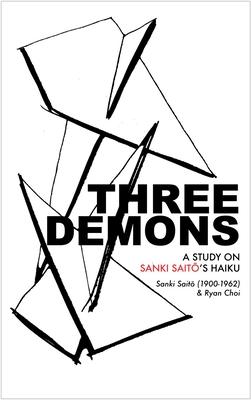Sanki Saitō (1900-1962), born Keichoku Saitō in Tsuyama, Japan, was a pioneering short story writer and poet whose bold, modern haiku challenged the conventions of his time. As a key figure in the New Rising Haiku movement of the 1930s, Sanki redefined the boundaries of haiku by breaking with the strict traditionalists who insisted on "season words" and the direct observation of nature. In their place, Sanki and his peers opened haiku to imagined experience, infusing it with radical new perspectives that would forever transform the form.
Writing under the pen name Sanki, meaning "Three Demons," his reputation as a literary maverick grew rapidly. His radical, inventive approach to haiku, however, also made him a target of Japan's militaristic government. In 1940, Sanki was imprisoned as part of the wartime crackdown on dissident artists and writers, and he was officially silenced--banned from writing or publishing his work.
Three Demons brings together Sanki's most evocative haiku, meticulously curated and beautifully translated by Ryan Choi. Drawing from five of Sanki's collections--Flags (1940), Night Peaches (1948), One Hundred Haiku (1948), Today (1952), and Transformations (1962)--this anthology introduces readers to the revolutionary spirit and emotional depth of a poet who helped redefine one of Japan's most treasured literary traditions.
